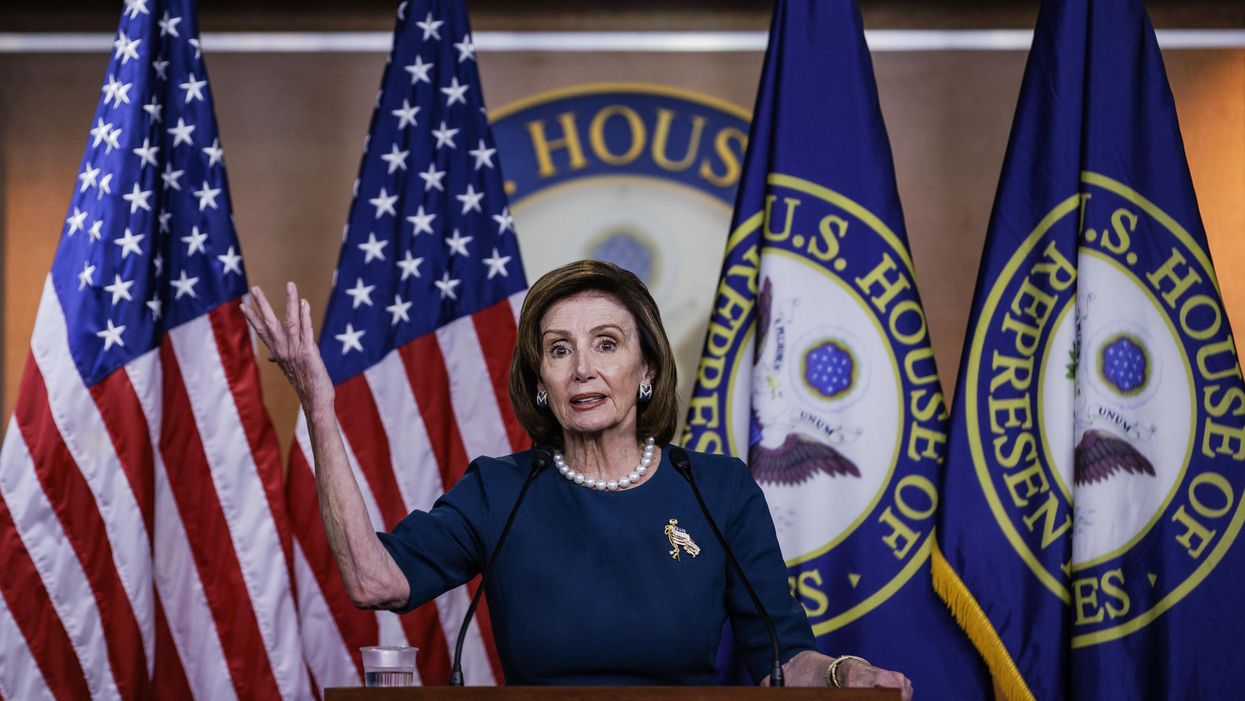"It's all part of the process," President Biden said about progressive protestors filming Democratic Sen. Kyrsten Sinema in a public bathroom. That's not part of the legislative process. Rather, it is part of the dysfunction and incivility that threatens the process.
The success of democratic government lies in diverse people arguing about deeply held beliefs of constituents in an atmosphere of respect and inalienable rights. Legislatures are civilizations answer to authoritarianism. The alternative is violence and survival of the fittest in a de-civilizing world. What some people call illiberal democracy is merely a bus stop on the way to authoritarianism.
Our legislative process is broken. During the last few months, the concerns of moderate House Democrats were heeded only when they threatened to sink the $3.5 trillion measure that is the largest expansion of domestic social programs this country has ever seen. Progressive House Democrats resorted to name-calling and primary threats against senators of their own party who they saw as not toeing the party line. Speaker Nancy Pelosi only considered support from House Republicans when it looked like she would need to pick off a few to win two very contentious votes.
But while a bipartisan group of Senators were actively involved in negotiating with the White House to develop the original infrastructure bill, the speaker's office has driven House action.
It is ludicrous, in our democracy, to think that a $5 trillion spending bill could pass without the full participation of the entire Congress, including hearings, committee markups, and an open and fair amendment process on the House floor.
The reality is that today, municipal legislatures and councils have a more robust amendment process than the House. Members who want to influence the outcome of legislation have an incentive to work with their colleagues on both sides of the aisle. Yet, over the last few decades, both parties have made it more difficult for individual members to legislate and then we act surprised when we see a lack of collegiality and collaboration.
The floor itself is where we see this most starkly as members are no longer free to offer amendments, and special rules are either closed to amendments or overly restrictive. According to the House Rules Committee's "Survey of Activities" for the 116th Congress, there were no open or modified open rules for that entire Congress.
Such restrictions reduce members' abilities to proactively participate in crafting legislation and representing their constituents. Spontaneity, creativity and representation on the floor have declined as has civility.
The limitations benefit the majority leadership. But every member, down to the newest freshman, speaks for constituents who are owed no less vigorous representation than powerful committee chairs or even the speaker.
In addition to participating in the legislative process, members derive much of their power through their constitutional prerogative to exercise oversight of the executive branch. For too long, committees and Congress have failed to authorize too many parts of the government, resulting in a lack of oversight and therefore a lack of accountability of the legislature over the executive.
Since most members and chairs are authorizers, committee rooms are natural places for Republicans and Democrats to work together on commonsense solutions and overcome rampant partisanship and polarization.
To get Congress back to regular order and create opportunities for members to actively participate in legislation, steps include:
- Allow for privileged consideration of legislation that has 300 cosponsors.
- Require a supermajority of 60 percent to have a closed special rule on authorization and appropriation bills.
- If an open amendment process is not followed, then at least allow floor managers to select a minimum number of amendments (e.g., five per side) for major legislation.
- Enforce current House rules banning the appropriations for unauthorized programs or require a supermajority to waive Rule XXI (prohibition on unauthorized appropriations).
- Penalize appropriation bills by limiting spending by 2 percent to 3 percent over the prior year appropriation if a program is not authorized.
- And, if the regular process fails, as it frequently does, make each title of an omnibus appropriations subject to amendment on the floor if it contains unauthorized appropriations.
While some of those steps can be accomplished through rules changes, others require legislation. That may mean taking a tough vote, but Congress is the big leagues. Members who fought hard to be here should not hide behind the Rules Committee to avoid tough votes.
The Select Committee on the Modernization of Congress has done a lot of great, bipartisan work to help Congress become effective. A natural outgrowth of their work would be a Joint Committee on Congressional Reform, which has been done several times over the last century when Congress recognized it needed significant reforms to retain its relevancy and power. The 117th Congress would be the ideal time for this committee to gain a Senate counterpart to more vigorously restore and strengthen the legislative function of government.
Confidence in Congress continues to decline partly due to not allowing members to legislate. If a Congress is not legislating, its value to its constituents is diminished as their problems and concerns are left unaddressed. Is it any wonder that much of Congress' power has shifted to the president?
Restoring a healthy legislative function is a prerequisite to reducing incivility and increasing collaboration. But more importantly, it is essential to maintaining our system of checks and balances that prevents a strong executive branch from dominating the government.



















Trump & Hegseth gave Mark Kelly a huge 2028 gift